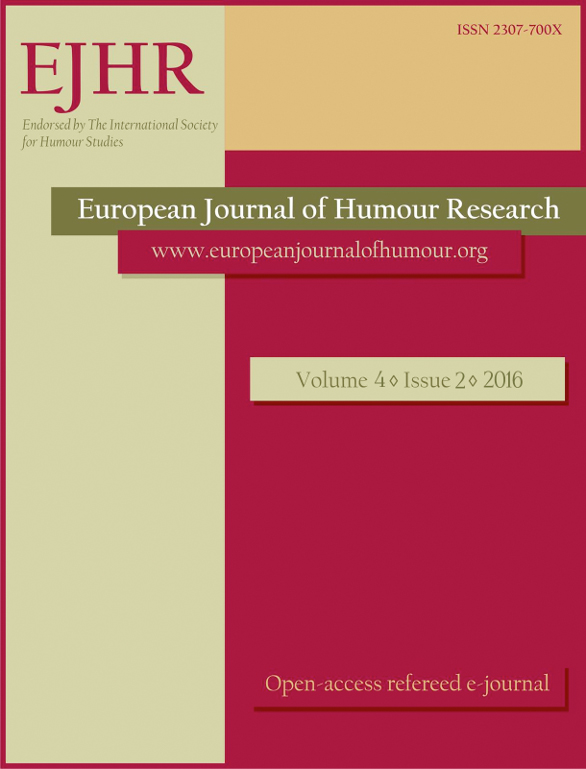Commentary piece
Commentary piece
Jokes optimise social norms, laughter synchronises social attitudes: an evolutionary hypothesis on the origins of humour
Author(s): John POLIMENISubject(s): Anthropology, Social Sciences, Language and Literature Studies, Psychology, Theoretical Linguistics, Applied Linguistics, Communication studies, Sociology, Pragmatics, Sociolinguistics
Published by: Krakowskie Towarzystwo Popularyzowania Wiedzy o Komunikacji Językowej Tertium
Keywords: humour; laughter; jokes; evolution; social norms; emotions;
Summary/Abstract: A prominent humour theory suggests that most jokes will violate a subjective moral principle. This paper explores the ramifications of Thomas Veatch’s social violations theory of humour, and hypothesizes that jokes tend to produce four distinct humour emotions, in a sequential manner. The final emotional response to a humorous stimulus involves an aesthetic judgement about the inference of the joke. Humour could therefore be a cognitive-emotional mechanism used to appraise social norms while laughter serves to signal appreciation for the social inferences associated with the joke. It is further proposed that the cognitive-emotional structure of humour implies an evolutionarily adaptive function.
Journal: The European Journal of Humour Research
- Issue Year: 4/2016
- Issue No: 2
- Page Range: 70-81
- Page Count: 12
- Language: English

